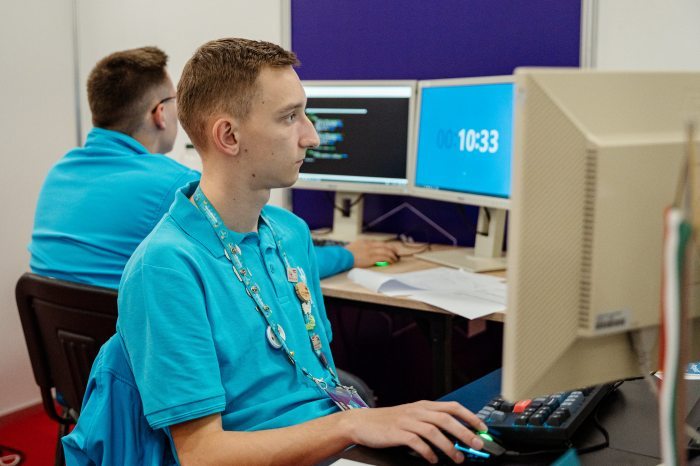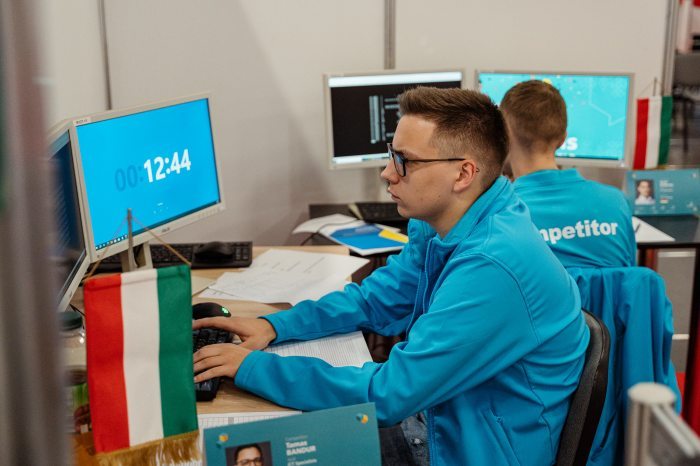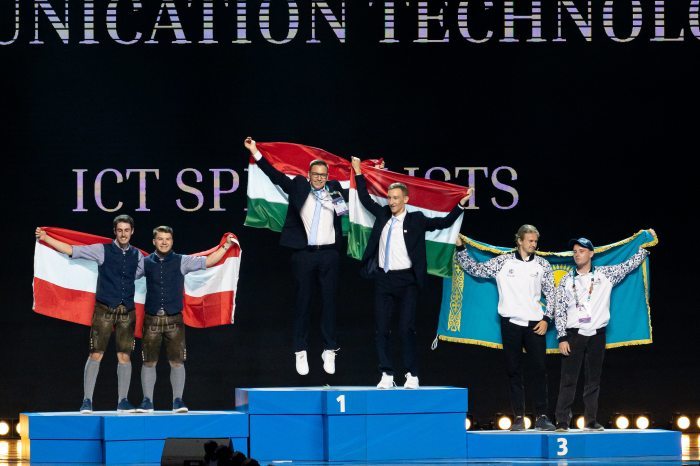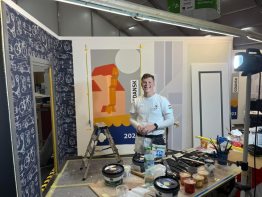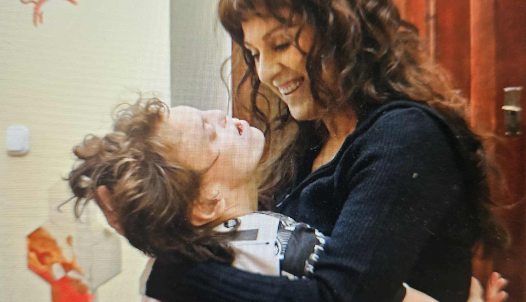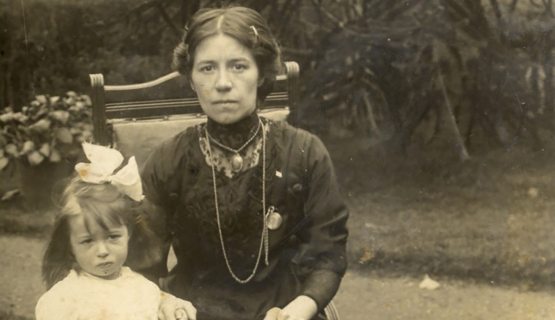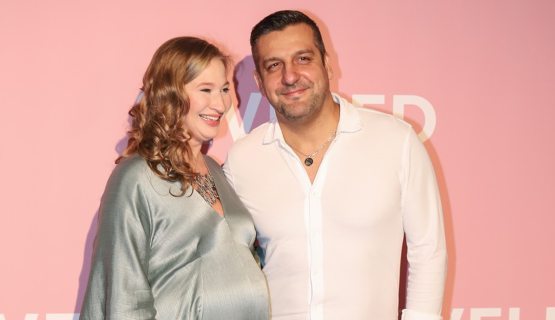Are you guys speaking Hungarian now? – Two young ICT Specialists who conquered Europe
"You can be a game developer or a network engineer," says one of them, explaining why IT is a good career choice. In September, Tamás Bandúr and Zsolt Koncsik, both in their early twenties, took the top step of the podium in the EuroSkills Competition in the ICT Specialist category and won a medal the likes of which had never been seen before in Hungary. How did they get from the Comenius Logo to designing systems for large companies? And why were they asked, "Are you guys speaking Hungarian now?" They told us about that too.
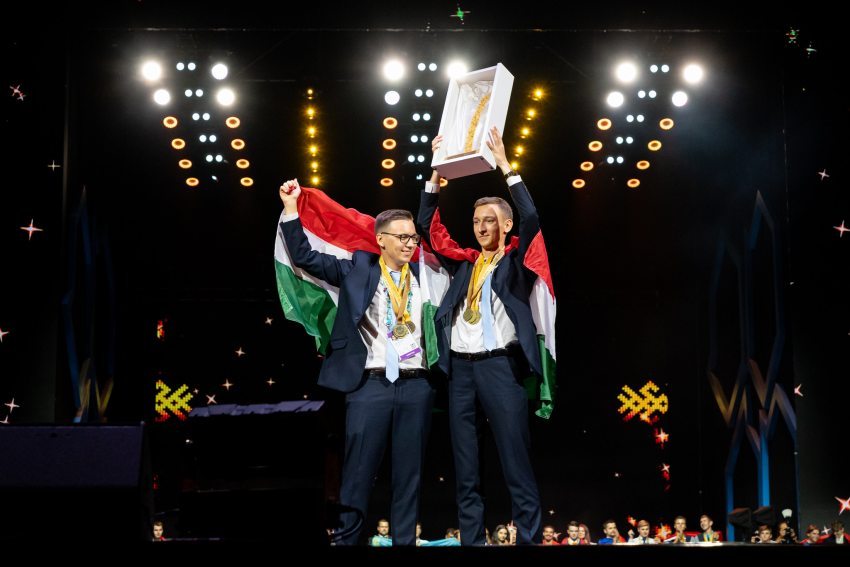
Beyond computer games
PlayStation, racing, and gunfighting games. Like many other children, this is how they started learning about computers and IT. But after a while, it wasn't just the games that became interesting. They were eight to ten years old when they first got into programming. "I started modifying the files of the games, so I changed the way the game was played," says 21-year-old Zsolt.
If you went to school in the 1990s or 2000s, you are probably familiar with the Comenius Logo program. The little turtle that you had to give instructions to in IT class - that's probably what everyone remembers. Comenius Logo is a simple programming language. "We were introduced to that, too at elementary school. I saw that it wasn't that complicated, and I was interested in creating something that would work automatically," says 22-year-old Tamás.
Years ago, Zsolt Koncsik from Albertirsa and Tamás Bandúr from Dány met in Kőbánya, at the BMSZC Pataky István Technical School of Communications and Information Technology. They were in the same class, and the same group several times during classes, and they helped each other. Today they are both students of computer engineering at the Faculty of Electrical Engineering and Informatics of Budapest University of Technology (BME). We sat down for a chat in one of the Buda buildings of the University of Technology. The boys returned home from the European Skills Championships (EuroSkills) in Gdansk in September last year as gold medallists.
They were named the best ICT Specialists and also won the Jos de Goey - Best in Europe award, which is unprecedented in Hungary.
IT systems management is a team effort
But let's start at the beginning! What does an ICT Specialist do? They design and operate IT systems for large enterprises, which means they have to figure out which tools, infrastructure, and technologies best serve their needs. There's a big difference between a small company and a large enterprise with a national reach.
Tamás and Zsolt won the national finals in April 2022, and last year they prepared for the Gdansk competition from March to the end of August. Five days a week, eight hours a day, but they reassure us: there was so much downtime that everyone had time for a little holiday.
During the preparation phase, they also had to mentally adjust to the intense pace of the competition: in addition to mental training, team-building sessions were held, where they also got to know former competitors. "I tend to stress things out beforehand, but as soon as the first task started in Gdansk, I worked the same way as I did in the office during the preparation," says Tamás.
"I only get nervous when I feel we are not prepared enough. But luckily we've practiced everything," Zsolt continues. The European Championships itself lasted three days, with five hours of work a day. IT systems management is basically a team effort, with two people doing different jobs. "You need a very deep knowledge in each of these areas, it's difficult to do that alone. Just like in a company, there is an IT department, a team, we worked as a team at the competition," explains Tamás.
"Are you speaking Hungarian now?"
In the competition, they had to develop an IT system for an imaginary company: email system, file-sharing servers, web servers, and so on.
The need to keep everything confidential and to put a strong emphasis on security made their job more difficult. At first, they were working on a system for a small company, and then they had to design and operate a nationwide network. They worked on Linux and then Windows servers. As a complete outsider, I can understand this, but as they say, they have been in funny situations when the subject of IT came up in a group. (The working language in the competition is English, of course, but the competitors can speak Hungarian with each other.)
"The technical terms we use often have no Hungarian equivalent. In one of the mental preparation workshops, the two of us and the software developer were talking, and the others just sat and listened to what we were talking about," recalls Zsolt. "Then they asked, 'Are you guys speaking Hungarian now?" - Tomi continues laughing.
"When I was watching the painters at the stands at the Competition in Poland, it was easy to tell how they were doing with the task, how many elements were ready. Whereas in our case, the most a spectator or fan can see is how many black windows are open on the screen," Tomi explains. As he tells us, the most someone can see is that an IT competitor is sitting at the computer with his head in his hands - and that's not a good sign.
Tamás and Zsolt tried to remain calm throughout, but there were some unexpected situations. Time was of the essence. On the first and third day, they almost didn't finish the task, with only a few minutes left. On the second day, however, everything went according to plan and they spent the afternoon just checking.
The podium was the goal
"We went on a hunch and thought the competition days went well. We expected that we could probably finish on the podium, that was the goal," says Tamás.
"But the announcement of the results was incredible. As soon as the second place was announced, we knew we had won," they say.
A total of 14 countries competed in the ICT System Operator category, including Austria, Germany, Finland, and Kazakhstan, with the Austrians coming second after the Hungarians and the Kazakhs taking third place.
Tamás and Zsolt were not expecting the Best in Europe award, as they say, before the competition they were joking about how nice it would be to be the first Hungarian to win it.
"I almost fainted on stage, wondering what would happen next," recalls Tomi. Then their names were announced. This means that they were the best in Europe with the highest score (799 out of 800) out of around 600 competitors. The Austrian gardening team came second, and web developer János Hidvégi came third (find an interview with him here).
The European champions prepared for the competition in the offices of the HTTP Foundation (Dissemination of Network Knowledge Foundation), with the support of the Hungarian Chamber of Commerce and Industry (MKIK). Their preparation was guided by János Csőke, a EuroSkills gold medallist himself, and assisted by several former competitors. The young people are also grateful to their high school teachers, among them Péter Gödöny and Zoltán Pesti.
"Everything from firefighters to lawyers, but no ICT Specialists"
In their families, they are pioneers, as no one has ever worked in ICT before. "There's everything from firefighters to lawyers, but no IT specialists," laughs Tamás, who was awarded the Commemorative Plaque for the Municipality of Dány, his hometown. "It's a small village, so I know almost everyone, and it's nice to see that other people besides my family were happy about our success."
"In my house, the family watched the results live online, fighting back tears. When I got home, we had a big party. I also got a few invitations to give some presentations in Albertirsa," says Zsolt, who will compete again this year, but this time as an individual competitor, at the WorldSkills World Championships in Lyon, France. Of course, they celebrated their success in Gdansk, too, with the whole Hungarian and international team.
It was a great experience for them to see the Hungarian team constantly helping each other, even when someone was having a bad day.
And why would they recommend computer science to students who are about to choose a career? "You can be a game developer or even a network engineer. There are so many different positions! I think it's good to get to know the field as young as possible. For example, I once taught Lego robotics to nine-year-olds," says Tomi. They both think it's important to finish university, as there are still many new areas of IT they haven't explored, such as cybersecurity and cloud technologies. They add that IT is constantly evolving and it is important to keep up.
Our interviews with other Hungarian medallists from the 2023 EuroSkills Competition are available here.
